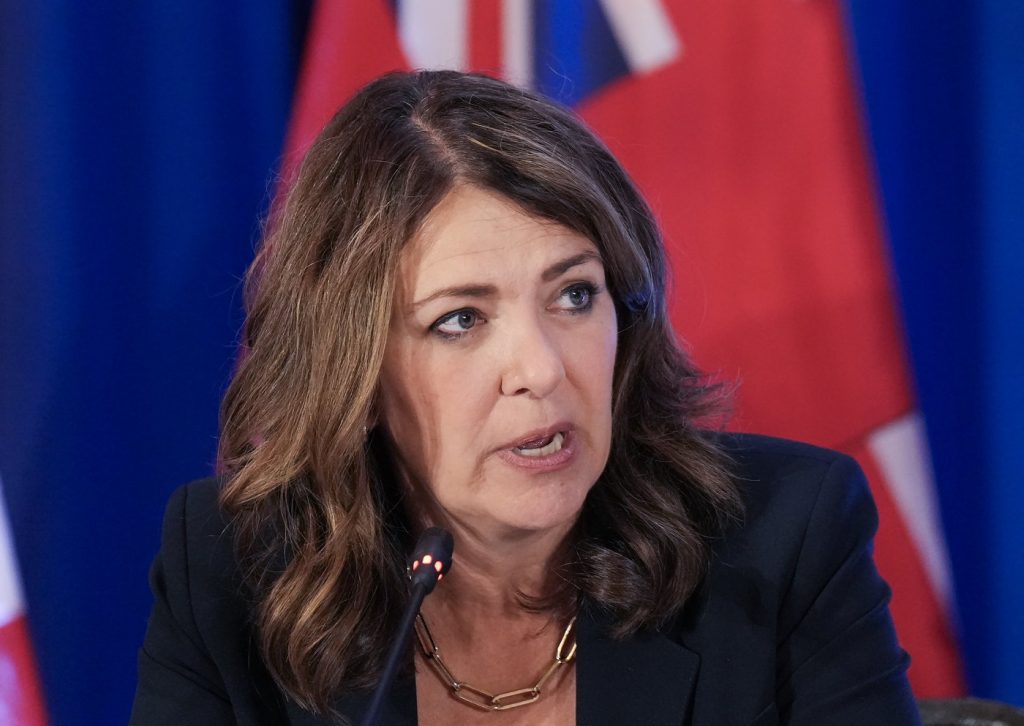EDMONTON – Alberta Premier Danielle Smith has taken a controversial step by directing officials to invoke the notwithstanding clause of the Canadian Charter of Rights and Freedoms in order to amend three laws that impact transgender individuals. This directive is encapsulated in a leaked government memo obtained recently, outlining the government's plan to develop legislation for the upcoming fall legislative session.
The internal memo, dated September 10, issued by Deputy Minister of Justice Malcolm Lavoie, instructs various departments to gather information for the potential invocation of the notwithstanding clause. The three laws under scrutiny include regulations surrounding students' rights to change their names or pronouns in schools, a ban preventing transgender girls from participating in female amateur sports, and restrictions on gender-affirming health care for transgender youth.
Justice spokesperson Heather Jenkins provided a brief statement acknowledging the situation, asserting that the Alberta government is prepared to utilize all legal and constitutional provisions at its disposal, including the notwithstanding clause, if it deems necessary to protect the safety and well-being of children.
LGBTQ+ advocacy groups, including Egale and Skipping Stone, are currently challenging the school pronoun law and healthcare restrictions in court, labeling them as discriminatory measures. Helen Kennedy, the executive director at Egale Canada, criticized the government's potential use of the notwithstanding clause as an “unconscionable attack” on 2SLGBTQI individuals and a display of state-sponsored transphobia. She emphasized that such actions endanger not just queer and trans communities but the rights of all Canadians.
The notwithstanding clause is a seldom-used provision that permits governments to override certain sections of the Charter for a period of up to five years. Smith has previously indicated that invoking this clause would be a measure of last resort when it comes to the government's transgender health restrictions. She expressed confidence that the laws in question would withstand challenges posed under the Charter.
The legal challenges continue to evolve. A law prohibiting doctors from administering gender-affirming treatments, such as puberty blockers and hormone therapy for minors, is currently stalled due to a temporary court injunction issued in June, with the Alberta government appealing this injunction in August. Conversely, the education law, which mandates parental consent for students under 16 wishing to change their names or pronouns, has already taken effect. For students aged 16 and 17, parental notification is required, but consent is not necessary.
Furthermore, the law disallowing transgender athletes aged 12 and older from competing in female amateur sports is actively implemented in Alberta. Some school divisions have been asking parents to verify their children’s sex assigned at birth on forms related to participation in girls' teams. In a recent directive, Smith instructed Sport Minister Andrew Boitchenko to ensure the full application of this sports law, employing all appropriate legal and constitutional strategies.
Alberta is not isolated in this approach. The Saskatchewan government, led by Premier Scott Moe, recently invoked the notwithstanding clause for a similar school pronoun law that is also under legal challenge. A court ruling in Saskatchewan affirmed that the notwithstanding clause limits judicial power to overturn that particular legislation, although it does allow for a declaratory judgment on potential violations of rights.
Alberta's engagement extends beyond this issue; it is also involved in a significant Supreme Court case focused on Quebec's secularism law, which restricts public sector workers in positions of authority from displaying religious symbols. The Alberta government aligns with Quebec’s use of the notwithstanding clause, expressing disappointment with the federal government's appeal aimed at imposing boundaries on how the clause may be employed.
In a recent social media post, Smith reiterated her support for Quebec's constitutional authority to utilize the notwithstanding clause and criticized the federal government's actions as a threat to national unity and a foundational principle of the Constitution.












